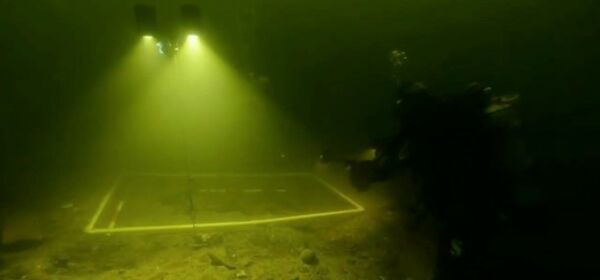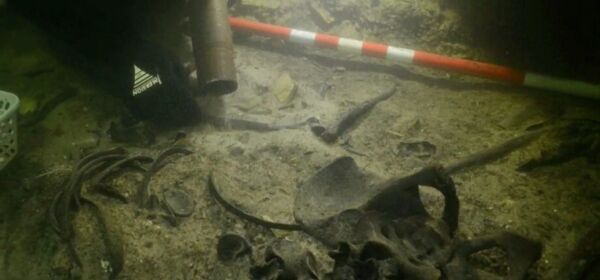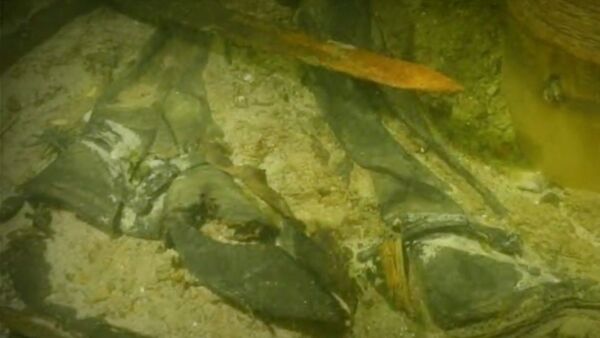Archaeologists recently confirmed the discovery of a medieval soldier’s remains and weaponry on the floor of Lithuania’s Lake Asveja during an underwater inspection of a wooden bridge undergoing repairs.
Elena Pranckėnaitė, a researcher with Lithuania’s Klaipėda University, told the Baltic News Service that the findings were located some 30 feet below the lake’s surface under a layer of sand and were discovered when divers were inspecting the Dubingiai bridge’s support system, which is in the process of being replaced with metal supports.

In a statement to Live Science, Pranckėnaitė revealed that preliminary examinations at Vilnius University have indicated the remains were those of a man who died during the 16th century. With the additional discovery of an iron sword, leather belt and boots with spurs and two knives with wooden handles, analysts concluded that the individual held a military status.
It is not believed that the individual was purposely buried in the area, but that the soldier's body was instead covered by silt deposited onto the remains over the years. It’s unclear what caused the individual’s death.

"For now, we assume that those discovered human remains could be linked with the former bridge leading to Dubingiai castle, which was situated on the hilltop on the shore of Asveja Lake," Pranckėnaitė said, explaining that a survey conducted in 1998 previously revealed that an older bridge dating back to the 16th or 17th century once stood in the area.
A team of researchers with the National Museum of Lithuania are expected to continue their analysis of the findings. Pranckėnaitė told Live Science that the team hopes to “tell the [soldier’s] story” within a year at the earliest.


